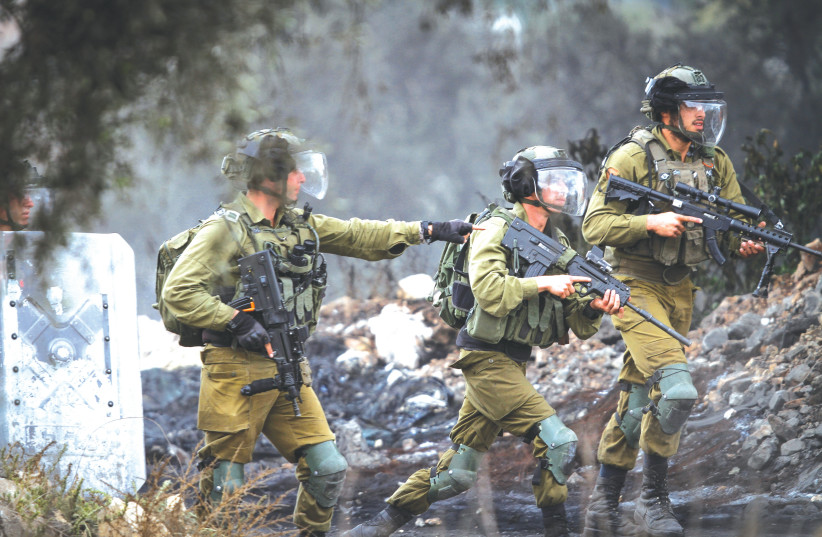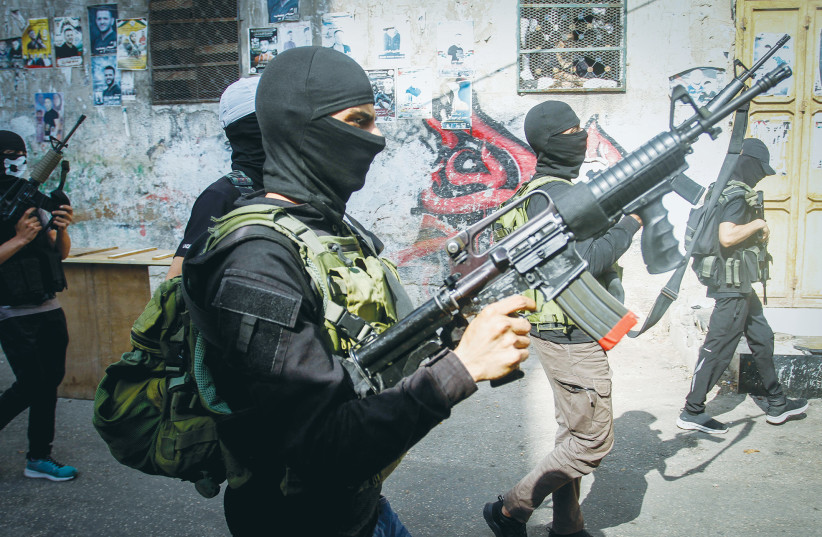The first two weeks of April felt as though they were the worst two weeks Israel has experienced in recent years just shy of a full scale conflict.
The start of the now 14-month old series of terror waves in March 2022 was similar to those weeks last month, in terms of the quantity of the spike in attacks and the difficulty to keep up with them.
What distinguished last month was that Israel was also hit by rockets from three different points – at the same time as the attacks.
Top IDF brass made it clear that this was Iran was testing how far it could push Israel and that the Islamic Republic might use its proxies surrounding the Jewish state to go even further as the year wears on.
Yet the future is mixed and confusing.

Terror attacks at the end of April didn't compare with the first half
On one hand, the level of attacks did not compare with the first half, a strange statement to make when Israel is currently imposing tighter restrictions on Jericho after the emergence of recent terrorists from there and after signs that a new round of attacks might come from what was once a calmer Palestinian-Authority-controlled area.
Last week, two Palestinians were killed in the neighborhood of Aqabat Jabr in the city. This followed an IDF operation on March 1 in which two Palestinians suspected of involvement in the shooting attack that killed Elan Ganeles were arrested. During that incident, one of the suspects was shot while trying to escape and died on the way to the hospital. As well, the terror cell that killed Lucy Dee and her two daughters, Maia and Rina, on April 7 in the Jordan Valley, are still at large.
Security forces are also mid-manhunt for a Palestinian who shot and wounded an Israeli jogger last week near to the West Bank town of Silwad and several other terror attacks from late March and early April.
And yet, the statement that the second half of April was substantially quieter than the first half remains accurate for the simple reason that there was no rocket fire.
Terror attacks vs. rocket fire and drone incursions
Terrorism, whether organized or a lone wolf attack, is tragic and disruptive to normal life. But it does not compare to the impact of rocket fire and enemy drone incursions and pales to their geopolitical impact.
Nearly all terror attacks after the post-2005 Second Intifada era have not been mass casualty events. In contrast, rockets, every time they are shot, could lead to a mass casualty event if even one gets through Iron Dome’s “missile shield” and hits a group of civilians. Drone attacks can have a similar impact.

If Israel can usually respond to a terror attack by sending forces into a West Bank town where it has clear primacy, to respond to rocket attacks, Israel would need to unleash its air force and invade a foreign country or territory (like Gaza) to respond.
This also means that any rocket or drone attack – and any Israeli response – carry a heightened possibility of developing into a larger conflict with Hamas, Hezbollah or Iranian proxies in Syria (though Syria currently is the weakest link).
If Israel’s response to most terror attacks might be greater than law enforcement, there is no question that Jerusalem’s response to rockets and drones is at the level of militaries and broader armed conflict.
When there are rockets and drones from multiple fronts at the same time, strategic questions are raised about how long the Israeli military can mount a coherent and effective defense.
Why have things been calmer on the rockets and drones front?
Why have things been calmer on the rockets and drones front? It could be that Israel’s responses were harsh enough to deter for now. It could also be that the attacks only came because of Ramadan and tensions it raised over the Temple Mount.
It could also be that the Jewish state’s enemies tried to test it specifically in early April, when the IDF was seen as more vulnerable because there had not yet been a slowdown in conflict over the judicial overhaul. Israel may appear less weak until June or July when the issue is set to heat up once again.
Or, it could be that Iran is biding its time for another moment in time when it thinks Israel is letting its guard down, and that a mere two weeks of relative quiet should be taken with a grain of salt.
In the meantime, Israelis will take what temporary quiet they can get.
